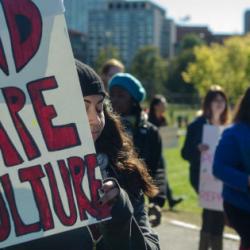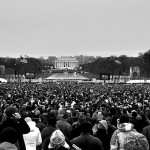Christopher Lasch used his 1995 book The Revolt of the Elites and the Betrayal of Democracy to sound the alarm about a growing democratic deficit in America. The danger to democracy wasn’t caused by a revolt of the masses, Communist style; it was caused by a revolt of the elites, cultural Marxist style.
“In effect, identity group politics has come to serve as a substitute for religion – or at least for the feeling of self-righteousness that is so commonly confused with religion.” (17)
Lasch found it significant that Rhodes Scholar Robert Reich, ex-President Bill Clinton’s Secretary of Labor, held up Hollywood and its elites as a prime example of the “wondrously resilient” communities ‘that spring up whenever there is a concentration of ‘creative’ people’.
The sort of creativity and flexibility that marked Hollywood, Reich suggested, would also mark the new economy. It marked a pivot away from the sorts of working class jobs that historically marked Democrat voters in the U.S. and their political equivalents around the Western world: away from the jobs in the rustbelt. It marked a pivot towards the multicultural urban centres.
Lasch’s reflections on Hollywood and the revolt of the elites seems particularly pertinent to the scandal that has erupted over Hollywood mogul Harvey Weinstein, which marked an end to the collective silence over his longstanding pattern of exploiting women. That silence is connected to the Democrat Party and its embrace of identity group politics and quasi-religious self-righteousness.
That need to maintain the facade of self-righteousness had made Weinstein immune to criticism.
Acting Political, Political Acting
Lasch notes that when Washington detaches from its nation’s character and moral identity it ‘becomes a parody of Tinseltown; executives take to the airwaves, creating overnight the semblance of political movements; movie stars become political pundits, even presidents; reality and the simulation of reality become more and more difficult to distinguish.’ (38-39)
This flight from reality, particularly moral reality, is not accidental. It is endemic in their own worldview:
‘Liberals have always taken the position that democracy can dispense with civic virtue…. it is liberal institutions, not the character of citizens, that makes democracy work. Democracy is a legal system that makes it possible for people to live with their differences.’ (85)
The longer people who have a merely institutional, impersonal, view of democracy hold power, the more powerfully a peculiar sort of impiety develops. It is a loathing for anything that smacks of personal responsibility, family values, or civic virtue.
The Byronic hero
The best and the brightest in the Hollywood mould are marked by two things: a relentless love of the present, marked by a cult of youthfulness, and (what follows) a relentless contempt towards the past. The past invariably includes the historic aspects of personal identity: family, nation, and religious identity.
A commitment to being on top of the latest trends convinces the creative elite that they are on the right side of history without considering that the very claim is absurd if they acknowledge no sense of historical identity.
The feeling of being ‘right’ without any standard of rectitude that would justify that feeling is all a product of their self-image:
‘(n)either valor and chivalry nor the code of courtly, romantic love, with which these values are closely associated, has any place in the worldview of the best and brightest…. It thinks of itself as a self-made elite owing its privileges exclusively to its own efforts… The “community” of the best and brightest is a community of contemporaries, in the double sense that its members think of themselves as agelessly youthful and that the mark of this youthfulness is precisely their ability to stay on top of the latest trends.’ (39-40)
Communities that collectively ignore moral considerations in their conduct and turn a blind eye to the serial exploitation within themselves can continue almost endlessly until they lose power.
At that point, the bubble bursts, and the establishment finds itself excluded from being “on top of the latest trends.”
Lacking contemporary power, Washington and Hollywood, because of their commitment to being on top of the latest trends, suddenly looks very, very old.
Unfashionable even.
This is precisely what happened with the election of anti-establishment candidate and now President Donald Trump. His election is ironic insofar as he too was a reality TV star fitting Lasch’s description. Where he differs though is that he is of the populist mould that appeals to the sentiments and principles of the voters that the establishment elite ignored.
The rage of the establishment elites has been evident since that day.
Full of sound and fury
Now that it has been made abundantly clear that the waves of outrage – ranging from the mandarins of Hollywood to the talking heads of the mainstream media to the privileged ranks within the Washington beltway – are impotent to overturn the election, a rather extraordinary thing has occurred.
Suddenly a whole coterie of stars ranging from Gwynneth Paltrow to Angelina Jolie are beginning to sing about the corruption of Miramax founder, Hollywood giant, and Democrat powerbroker Harvey Weinstein. It has hitherto been an open secret, an incantation that dare not be uttered in public.
An article from the Weekly Standard puts its finger on why that has changed:
“Would the Weinstein story have been published if Hillary Clinton had won the presidency? No, and not because he is a big Democratic fundraiser. It’s because if the story was published during the course of a Hillary Clinton presidency, it wouldn’t have really been about Harvey Weinstein. Harvey would have been seen as a proxy for the president’s husband and it would have embarrassed the president, the first female president.”
In other words, the story would have remained buried because the conspiracy of silence that allows for the image to self-righteousness to persist would still have been necessary to maintain the power of the elite tribe.
Trump’s election has made Weinstein (and the Hollywood, media, and political establishment) irrelevant. The exploited people are no longer afraid of their own. They have been liberated.
And simply by virtue of being excluded from power, the swamp is being drained.
Lasch’s words are prescient and wise. He states that there is a ‘need for a revisionist interpretation of American history, one that stresses the degree to which liberal democracy has lived off the borrowed capital of moral and religious traditions antedating the rise of liberalism. A second element in this revisionism is a heightened respect for hitherto neglected traditions of thought, deriving from classical republicanism and early Protestant theology, that never had any illusions about the unimportance of civic virtue.’(86)
Self-righteousness and Christ’s righteousness
True civic virtue is not the property of any political party. It is the product of a righteousness far different and better than political self-righteousness. It is rooted in the righteousness of Christ, which is imputed to people when they recognize that they are sinners in need of God’s grace and mercy.
Having received that, out of gratitude they will both love God and others, in particular their neighbours, whatever their group identity, out of a sense of pious reverence for Christ.
In the five hundredth anniversary of the Protestant Reformation, these words need to be heard not simply within America, but outside it.











